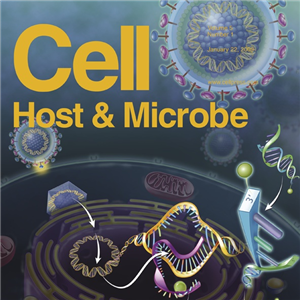
Mit Cell Host & Microbe konnte eine weitere neue Zeitschrift freigeschaltet werden.

Mit Cell Host & Microbe konnte eine weitere neue Zeitschrift freigeschaltet werden.
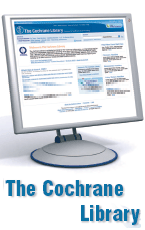
Das 1. Quartalsupdate der Cochrane Library ist erfolgt – mehr als 6 Wochen nach dem Update der Datenbank beim Hersteller Wiley! Wir haben beim Anbieter OVID heftig reklamiert, warum das diesmal so lange gedauert hat.
132 Reviews sind neu und 5 wurden aktualisiert. Die Release Notes für diese Ausgabe (aber nicht die Volltexte!) finden Sie bei Wiley Interscience. Die Datenbank enthält nun 5.676 Reviews bzw. Protocols (Cochrane Database of Systematic Reviews), 9.403 Abstract Reviews (Database of Abstracts of Reviews of Effects) und 564.387 Controlled Trials (Cochrane Central Register of Controlled Trials).
Zugang nur über das Universitätsnetz.
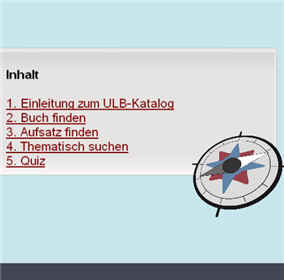
Wie sucht man eigentlich nach Zeitschriften im ULB-Katalog? Welche Platzhalter kann ich wo einsetzen? Und wieso habe ich hier einen Eintrag ohne eine Standortangabe in der Bibliothek? Fragen, die sich bei der Katalog-Recherche immer wieder stellen. Das neue interaktive Tutorial zum ULB-Katalog schafft hier Abhilfe und bietet sogar Übungsmöglichkeiten. Unbedingt ausprobieren!, meint auch das aktuelle Bulletin der ZB Chemie.
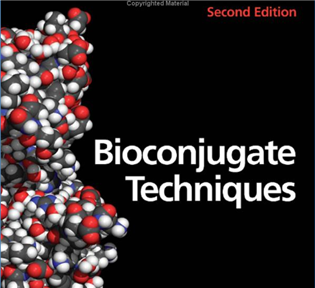
Bioconjugate Techniques (Second Edition)
Author(s): Greg T. Hermanson. 1323 S.
Elsevier 2008. ISBN: 978-0-12-370501-3
Bioconjugate Techniques ist eines der gut 1.000 Onlinebücher des Verlags Elsevier, welche die Zweigbibliothek Ende 2008 kaufen konnte. In den folgenden Wochen wird die ZB Med einige der Bücher und Buchserien exemplarisch vorstellen.
„“Bioconjugate Techniques, 2e“ provides highly detailed information on the chemistry, reagent systems, and practical applications for creating labeled or conjugate molecules. It also describes dozens of reactions with details on hundreds of commercially available reagents and the use of these reagents for modifying or crosslinking peptides and proteins, sugars and polysaccharides, nucleic acids and oligonucleotides, lipids, and synthetic polymers. It is a one-stop source for proven methods and protocols for synthesizing bioconjugates in the lab, allowing for fast retrieval of tried and tested techniques for synthesizing bioconjugates.A step-by-step presentation makes the book an ideal source for researchers who are less familiar with the synthesis of bioconjugates. It includes more than 600 figures that visually describe the complex reactions associated with the synthesis of bioconjugates, giving researchers a better understanding of how the commercially available reagents facilitate the crosslinking of peptides and proteins, sugars and polysaccharides, nucleic acids and oligonucleotides, lipids, and synthetic polymers. It includes entirely new chapters on the latest areas in the field of bioconjugation as follows: Microparticles and nanoparticles; Silane coupling agents; Dendrimers and dendrons; Chemoselective ligation; Quantum dots; Lanthanide chelates; Cyanine dyes; Discrete PEG compounds; Buckyballs, fullerenes, and carbon nanotubes; Mass tags and isotope tags; and, Bioconjugation in the study of protein interactions.“

Die Datenbank ACP Journal Club enthält mit den beiden Volltext-Fachzeitschriften „ACP Journal Club“ und „Evidence-Based Medicine“ (2000 in ACP aufgegangen) wichtige Quellen zur evidenz-basierten Medizin. Es stehen insgesamt 138 Hefte mit 4.000 systematischen Übersichtsarbeiten (Reviews) zur Verfügung. Jeden Monat erscheint ein neues Heft. Herausgeber ist das American College of Physicians.
The editors of these critically acclaimed publications apply the strictest criteria for study design to review over 90 journals in internal medicine and other specialties such as psychiatry, ophthalmology, gynecology, and surgery and choose only those articles that meet strict criteria for study design.
Die ZB Med lizenziert den ACP Journal Club von der Firma OVID in einem Paket mit der Cochrane Library. Dieses Paket heißt „Evidence Based Medicine Reviews – EBMR“ und ist wesentlich preiswerter als wenn man nur die Cochrane Library alleine beim Hersteller selber (Wiley Interscience) abonnieren würde. Durch die Lizenz bei Ovid können die Artikel des ACP Journal Club simultan mit der Cochrane Library und weiteren Datenbanken wie z.B. Medline oder Books@Ovid durchsucht werden.
Beispielartikel aus dem Januarheft 2009:
– Applying evidence: What’s the next action?
– Rosuvastatin prevented major cardiovascular events in persons with elevated C-reactive protein
– Review: Tight glucose control reduces septicemia, but not death, and increases hypoglycemia in critically ill adults
– Review: Inhaled anticholinergics increase risk for major cardiovascular events in chronic obstructive pulmonary disease
– Tiotropium reduced exacerbations but not rate of FEV(subscript 1) decline in patients with COPD using other respiratory medications
– Aspirin and/or antioxidants did not prevent CV events in diabetes and peripheral arterial disease
– Pioglitazone reduced liver injury and improved fasting glucose in nonalcoholic steatohepatitis without diabetes
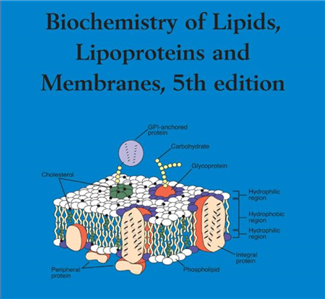
Biochemistry of Lipids, Lipoproteins and Membranes (Fifth Edition)
Edited by: Dennis E. Vance and Jean E. Vance
631 S. Elsevier 2008. ISBN: 978-0-444-53219-0
Biochemistry of Lipids, Lipoproteins and Membranes ist eines der gut 1.000 Onlinebücher des Verlags Elsevier, welche die Zweigbibliothek Ende 2008 kaufen konnte. In den folgenden Wochen wird die ZB Med einige der Bücher und Buchserien exemplarisch vorstellen.
„Research on the biochemistry and molecular biology of lipids and lipoproteins has experienced remarkable growth in the last 20 years, particularly with the realization that many different classes of lipids play fundamental roles in diseases such as heart disease, obesity, diabetes, cancer and neurodegenerative disorders. The 5th edition of this book has been written with two major objectives. The first objective is to provide students and teachers with an advanced up-to-date textbook covering the major areas of current interest in the lipid field. The chapters are written for students and researchers familiar with the general concepts of lipid metabolism but who wish to expand their knowledge in this area. The second objective is to provide a reference text for scientists who are about to enter the field of lipids, lipoproteins and membranes and who wish to learn more about this area of research. All of the chapters have been extensively updated since the 4th edition appeared in 2002.This book represents a bridge between the superficial coverage of the lipid field found in basic biochemistry text books and the highly specialized material contained in scientific review articles and monographs. It allows scientists to become familiar with recent developments related to their own research interests, and will help clinical researchers and medical students keep abreast of developments in basic science that are important for subsequent clinical advances. It serves as a general reference book for scientists studying lipids, lipoproteins and membranes and as an advanced and up-to-date textbook for teachers and students who are familiar with the basic concepts of lipid biochemistry.“

Allen Angehörigen der WWU steht ab sofort das neue STM-Paket des de Gruyter-Verlages zur Verfügung. Es umfasst ca. 90 Titel der Fächer Biologie, Physik, Chemie, Mathematik und Medizin. Darunter sind folgende medizinischen Titel:
Diese elektronischen Bücher sind im ULB-Katalog nachgewiesen und können jetzt rund um die Uhr benutzt werden.
Bitte beachten Sie: Die Bibliothek hat für Sie eine Ausgewählte Liste aller Online-Lehrbücher zusammengestellt. Zugänglich sind diese Bücher nur im Hochschulnetz der Universität.

Victor A. McKusick, Begründer von Mendelian Inheritance in Man
Online Mendelian Inheritance in Man (OMIM) ist eine Datenbank des NCBI und kann über die gleiche Suchoberfläche wie PubMed benutzt werden. OMIM ist eine umfassende, verbindliche und aktuelle Kompendium der menschlichen Gene und genetischen Phänotypen und fußt auf der von McKusick erstellten Buchreihe „Mendelian Inheritance in Man“. OMIM enthält Übersichten für alle bekannten Erbkrankheiten und rund 20.000 Gene. OMIM konzentriert sich auf die Beziehung zwischen Genotyp und Phänotyp, wird täglich aktualisiert und enthält zahlreiche Links zu anderen genetischen Ressourcen.
Die Online-Version des OMIM wurde im Jahr 1985/7 durch eine Zusammenarbeit zwischen der National Library of Medicine und der William H. Welch Medical Library an der Johns Hopkins ins Netz gestellt. OMIM ist in erster Linie für die Verwendung für Ärzte und andere Berufsgruppen gedacht, die mit genetischen Erkrankungen arbeiten, nicht für Patienten.
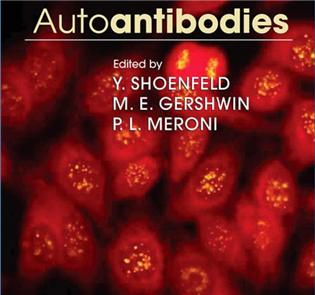
Autoantibodies (Second Edition)
Edited by: MD Yehuda Shoenfeld, MD M. Eric Gershwin
and MD Pier Luigi Meroni. 840 Seiten.
Elsevier 2007. ISBN: 978-0-444-52763-9
Autoantibodies ist eines der gut 1.000 Onlinebücher des Verlags Elsevier, welche die Zweigbibliothek Ende 2008 kaufen konnte. In den folgenden Wochen wird die ZB Med einige der Bücher und Buchserien exemplarisch vorstellen.
„Autoimmune diseases are characterized by the occurrence of antibodies reacting with self constituents of the body. This exciting new reference is an exhaustive review of the main autoantibodies identified up to now, with particular emphasis on those autoantibodies that display a clinical value. Each chapter is focussed on a single family of autoantibodies by reviewing their historical notes, definition, origin and source(s) of the antigen(s) recognized, genetic associations, pathogenic mechanisms that are mediated, method(s) of detection and clinical utility (disease prevalence/association, diagnostic value, sensitivity and specificity, prognostic value). An ideal reference for anyone involved in the field of autoimmune diseases.“
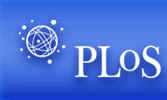
Nach einen Statement der Editoren großer medizinischer Journale müssen klinische Studien registriert werden, wenn ihre Ergebnisse später publiziert werden sollen. PLoS’s Gavin Yamey warnt nun angesichts einer abgelehnten Submission, dass PLoS „will reject unregistered trials from Public Library of Science„. Und weiter:
Last week, the PLoS Neglected Tropical Diseases editors rejected a clinical trial, without even sending it for peer review, because the trial had been initiated after July 1 2005 and yet the authors had failed to prospectively register it in a clinical trials registry. We want to remind all authors again of our position on clinical trial registration, a position made explicit in our guidance to authors:
„PLoS supports the position of the International Committee of Medical Journal Editors (ICMJE) on trial registration. All trials initiated after 1 July 2005 must be registered prospectively in a publicly accessible registry (i.e., before patient recruitment has begun), or they will not be considered for publication. For trials initiated before 1 July 2005, all trials must be registered before submission to our journals. See the ICMJE faq on trial registration for further details. The WHO’s list of approved registries is listed here.“
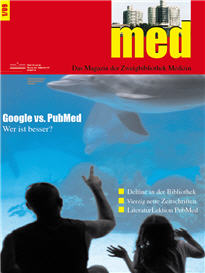
Inhaltsverzeichnis:
– Editorial: Visibility ist der Schlüssel für den Erfolg
– PubMed vs. Google: Wer ist besser? Ein Vergleich von PubMed mit verschiedenen Volltextdatenbanken
– Volltexte selber managen: Wie man seine archivierten PDFs effizient nutzen kann
– Zeitschriften: Wünsche werden wahr – Dank einer Etaterhöhung können lang gehegte Zeitschriftenwünsche erfüllt werden
– Was war nochmal 2008? Ein Bibliotheksrückblick in Zahlen
– LiteraturLektion 3: Strategie der PubMed-Suche
– Die Mikroorganismen des Darms des Delphins: Auf welche verschlungenen Wege die Bibliothek im Netz gefunden wird
– Taskforce Bibliothek+Fachschaft: Interview mit Oliver Obst
– Neue studentische Hilfskräfte
– PubMed News
– Neuerscheinungen
Die neue Ausgabe der Bibliothekszeitung med finden Sie sowohl bei issuu (Flash) als auch demnächst bei Miami (PDF). Die gedruckten Exemplare finden sie ab Ende dieser Woche in der Bibliothek und im Zeitungsregal der Personalkantine. Darüber hinaus werden allen Instituten und Kliniken Exemplare zugeschickt.

Elsevier hat uns folgendes mitgeteilt:
Scopus, ScienceDirect, The Admin Tool and 2collab will be unavailable due to scheduled maintenance for approximately 12.5 hours from 13:00 Saturday 7 to 01:30 Sunday, 8 March GMT (18:00 EST to 07:30 EDT). We apologize for the inconvenience.